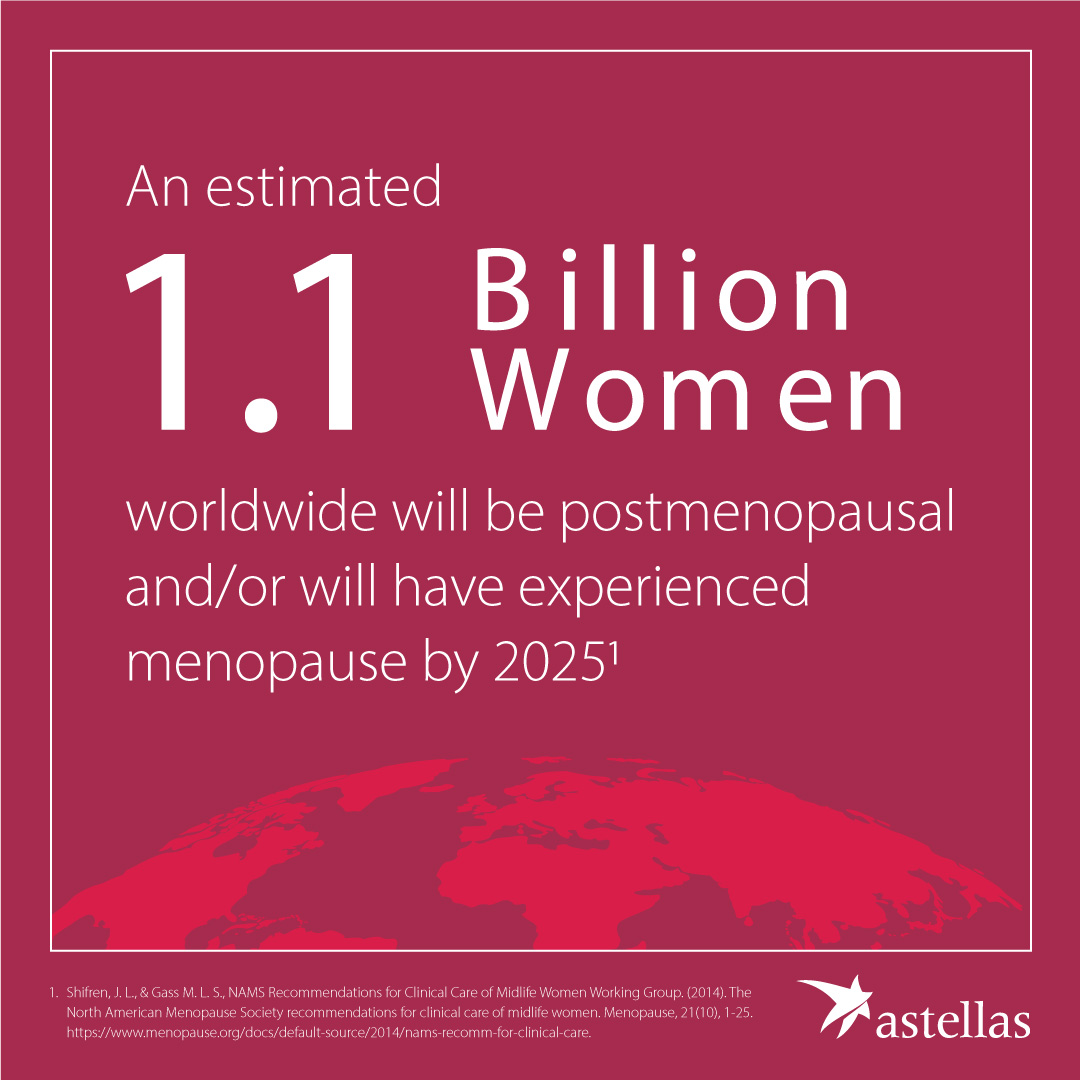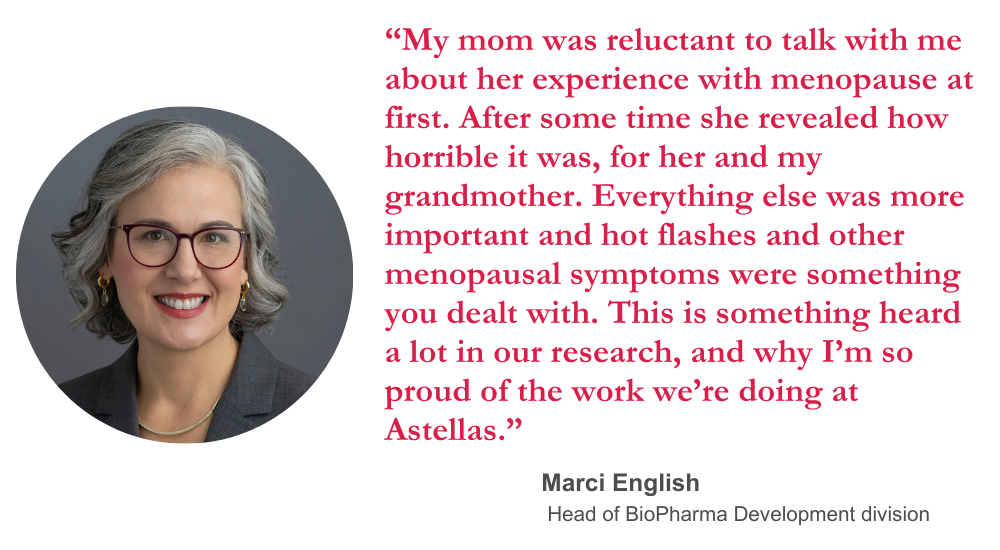Menopause has been ignored for too long: Our role to support people impacted every year

The natural progression of life is one of constant change, opportunities, exciting choices, and new challenges for women – often with their health and well-being at the center. However, the passage to midlife is the transition that receives the least attention despite its importance, leaving women and individuals assigned female at birth with little information to prepare for this new chapter.
As a normal part of aging, often during this chapter, menopause can bring changes that are more significant and distinct from all the other phases in life that precede it. By 2025, an estimated 1.1 billion women worldwide between the ages 40 and 58 will have experienced menopause or be postmenopausal.*1,2,3 Despite the tremendous number of people impacted, conversations about menopause are often limited, most likely due to stigma surrounding it globally, leaving them vulnerable at a time when they need guidance and support.
Menopause has been ignored for far too long. That is why this World Menopause Day Astellas is speaking up and shining a light on the symptoms and experiences of people impacted by menopause.
While discussing menopause can be challenging, it is important to recognize that symptoms*4 can have an adverse impact on many aspects of life, including work, relationships, and self-esteem. Speaking up about symptoms can help address the taboo.
At Astellas, we recognize individuals impacted by menopause need solutions and support. For this reason, we are building on the knowledge and expertise we have acquired from our heritage in treating a variety of therapeutic areas.
As an employer, we are committed to foster an open and supportive environment that meets our people’s needs at this life stage. Which is why we have created a guidance document for UK-based employees, and are exploring expanding it to other countries, to help employees feel confident in discussing menopause and ask for support and adjustments. By leveraging our strengths, we can deliver innovative new medicines and find solutions for better healthcare, treatment outcomes, and work life.
Together, we can celebrate resilience and will play our part in shaping a world where menopause is openly discussed and understood.
*1 Shifren, J. L., & Gass M. L. S., NAMS Recommendations for Clinical Care of Midlife Women Working Group. (2014). The North American Menopause Society recommendations for clinical care of midlife women. Menopause, 21(10), 1-25.
https://www.menopause.org/docs/default-source/2014/nams-recomm-for-clinical-care.
*2 Jones, R. E., & Lopez, K. H. (2014). Reproductive aging. In: R.E. Jones & K. H. Lopez, Eds, Human reproductive biology (4th ed., p119-131). Elsevier.
*3 Santoro, N. F. (2019). Menopause. In: C. J. Crandall, G. A. Bachman, S. S. Faubion, W. Klein, J. H. Liu, J. E. Manson, J. Mortimer, J. V. Pinkerton, N. F. Santoro, J. L. Shifren, R. C. Thurston, Eds, Menopause Practice: A Clinician’s Guide. (6th ed., p1-21). The North American Menopause Society.
*4 Attitudes towards menopause: time for change (2022). The Lancet, 399, 2243. https://doi.org/10.1016/S0140-6736(22)01099-6
Related Links






